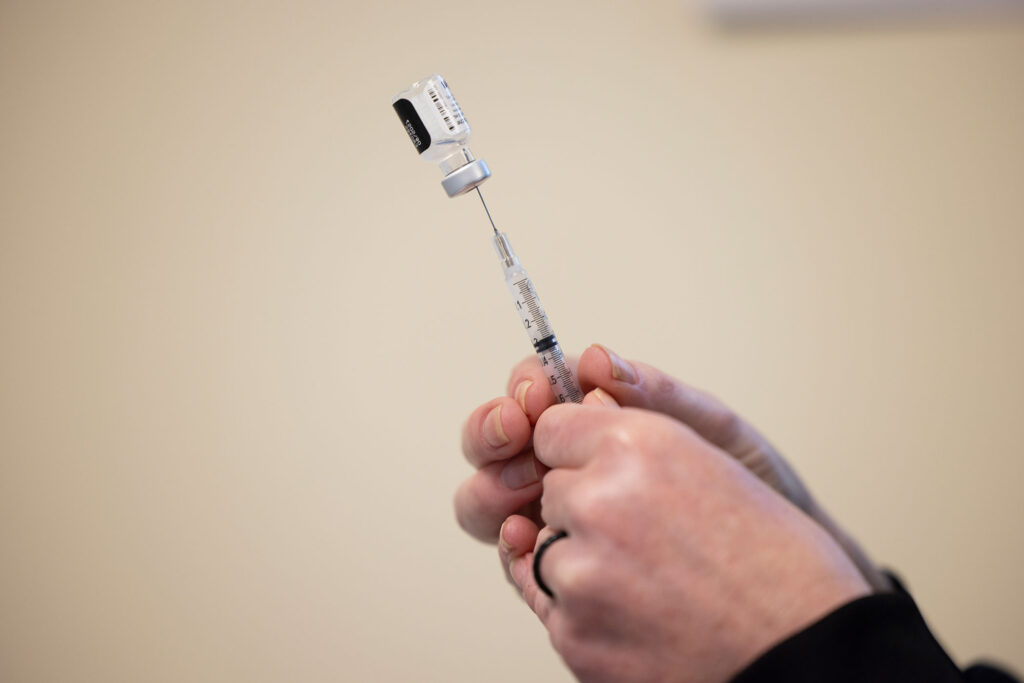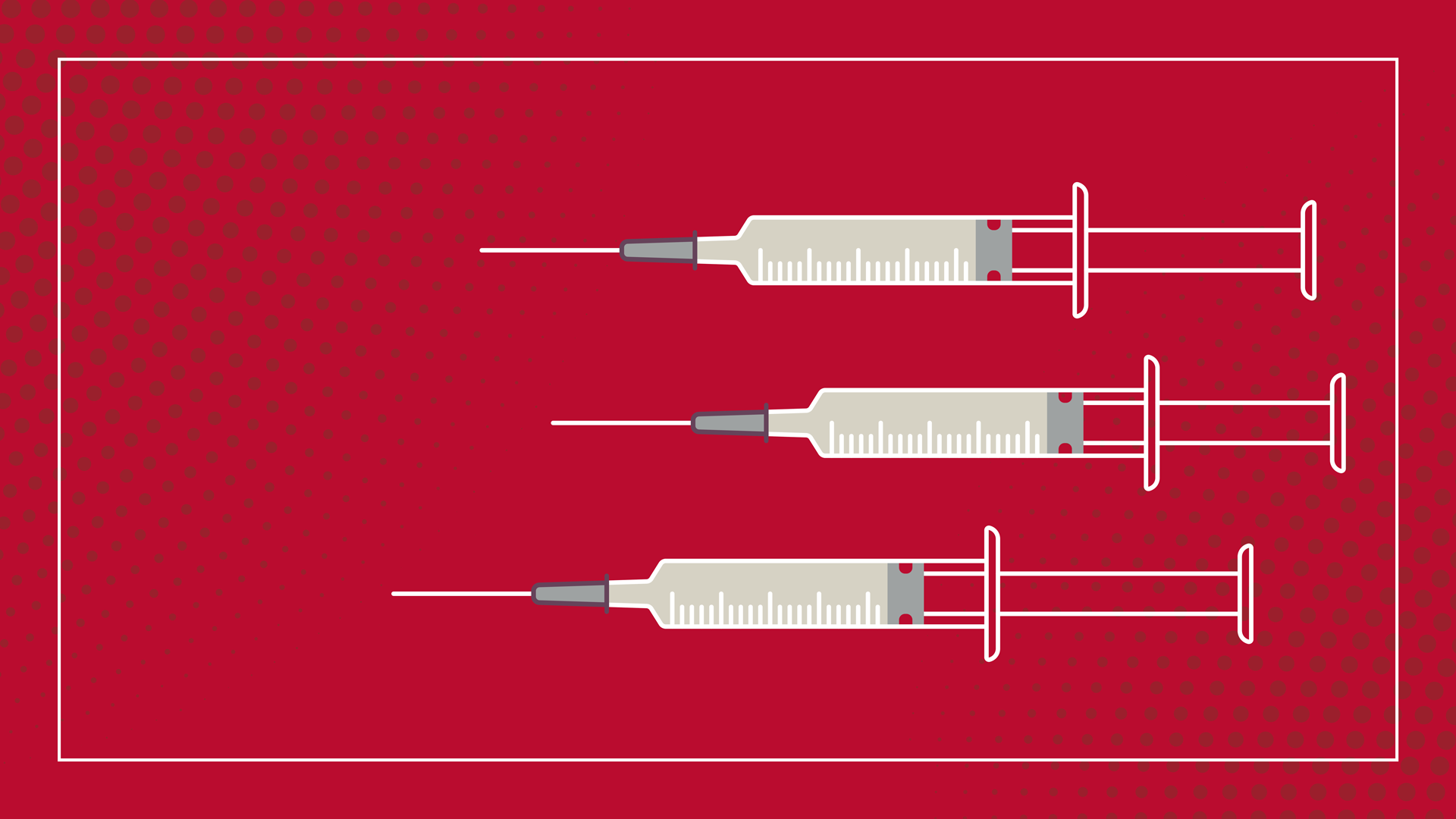The majority of U.S. parents accept the recommended vaccine schedule for their children. But a new review of published research from the University of Georgia suggests vaccine hesitancy among a small but significant percentage of Americans doesn’t appear to be going away any time soon.
The study reviewed recent published data and studies on vaccination rates and acceptance from a number of sources, including the Centers for Disease Control and Prevention’s annual National Immunization Surveys, peer-reviewed journal articles and articles in respected national media outlets, such as the New York Times.
Vaccine hesitancy is the reluctance or doubt about the value of a vaccine. It can cause parents to delay or decline a recommended childhood vaccination.
For the present study, the researchers defined vaccine hesitancy as reluctance or indecision that may cause a parent to choose not to vaccinate themselves or their children.

“Vaccine hesitancy is much discussed but needs to be better and more consistently studied,” said Glen Nowak, lead author of the study and co-director of the Grady College of Journalism and Mass Communication’s Center for Health and Risk Communication. “A key finding from this review is that many parents’ concerns about childhood vaccines have persisted over time.
“The recent studies we examined continue to show many new parents are concerned about the number of vaccines given at one time for young children, and many parents are concerned about potential side effects or safety. Unfortunately, all this persists despite years of widespread medical community and public health awareness and efforts to address vaccine hesitancy.”
Nowak previously served as the media relations director at the CDC and the communications director for the agency’s National Immunization Program.
“Our review is a reminder that the medical community and public health need to continually provide vaccine education, especially to first-time parents, about why vaccines are used, how vaccines work, what vaccines can do and what they can’t do,” said Nowak, who is also a professor in UGA’s Grady College of Journalism and Mass Communication.
Parents hesitant about HPV, flu vaccines
The researchers found recently published surveys indicate that most parents accept recommended childhood vaccines and have their children vaccinated on schedule.
However, their review of recent studies also showed higher levels of hesitancy for specific vaccines, particularly HPV and flu vaccines. Recent studies suggest that only three out of five teens are fully vaccinated against HPV, and 92% of parents with unprotected children in one CDC study said they were not likely to get them vaccinated.
The researchers also found that recently published research consistently found significant differences in vaccination rates across states and demographic groups.
Vaccine education needs to be ongoing and highly visible, which would require a culture change in the public health and medical communities.” —Glen Nowak, Grady College of Journalism and Mass Communication
For example, more than 88% of infants in Arizona received the hepatitis B vaccine at birth compared to only 62% of Florida newborns, according to one study.
Similarly, another study found Georgia, Maryland, Wisconsin, Wyoming and Kentucky had a 5% to 10% decline in kindergarteners vaccinated for measles, mumps and rubella (known as the MMR vaccine) in the 2020-2021 school year. Several other states, including Washington and Idaho, also had counties with high levels of nonmedical vaccine exemptions.
Several recent years of CDC data showed lower rates of pediatric vaccination among Black and Hispanic children. Additionally, children who weren’t covered by private health insurance were dramatically less likely to receive almost all recommended vaccines, as were those in lower socioeconomic households.

Political affiliation may affect willingness to vaccinate children
The review also found some evidence to suggest there may be a connection between parents’ general political beliefs and reluctance to vaccinate one’s children.
The researchers recommend that more and continued research is necessary to better understand how political beliefs are related to parents’ understanding of vaccine benefits and risks.
The small number of recently published articles that were examined in the review suggested vaccine hesitancy among self-reported conservative individuals was associated with valuing personal liberty. The limited available evidence, however, primarily focused on COVID-19 vaccine acceptance and the idea that adults can and should be able to make their own medical choices.
Trust is essential if you’re actually going to reduce hesitancy.” —Glen Nowak
“That’s different than what is often found when it comes to childhood vaccination hesitancy,” Nowak said. “This type of hesitancy reflects concerns beyond a vaccine’s effectiveness or safety, which are things doctors and nurses are often able to address. This type of vaccine hesitancy, which may pertain more to vaccines recommended for adults, involves things like, ‘I don’t want to get it because it’s my right to not get it.’”
Nowak noted that successfully addressing vaccine hesitancy based on philosophical or political values is a much harder hurdle for health care providers and public health experts to overcome.
Public health, medical community must continually invest in vaccine education
Another challenge in building vaccination acceptance and reducing vaccine hesitancy is that the population of parents with children who need vaccines is ever changing.
“Every single day, new parents are coming online, so efforts to improve vaccination acceptance can’t just be a single campaign and then it’s done,” Nowak said. “Vaccine education needs to be ongoing and highly visible, which would require a culture change in the public health and medical communities.”
Although the culture is changing, he said, we haven’t crossed the threshold where where vaccine education is a big push in the public health and medical worlds, particularly with pediatricians, family physicians, nurses and OB-GYNs.
We have to do more to educate parents … about the vaccines that will be recommended after the child is born, why those vaccines are recommended and the importance of young children getting those vaccines in a timely manner.” —Glen Nowak
“Until we get to that point,” Nowak said, “I think we’re going to continue to see many parents and others be reluctant or have doubts about the safety and benefits of recommended vaccines.”
Nowak noted that state and local vaccination requirements for day care and school enrollment can be helpful to reach community immunity levels for certain diseases, but that mandates don’t build trust in the medical and public health community among parents.
“Trust is essential if you’re actually going to reduce hesitancy,” Nowak said. “We have to do more to educate parents, particularly first-time parents and during pregnancy, about the vaccines that will be recommended after the child is born, why those vaccines are recommended and the importance of young children getting those vaccines in a timely manner.”
Published in Pediatric Clinics of North America, the study was co-authored by Michael Cacciatore, co-director of the Center for Health and Risk Communication and an associate professor in the Grady College of Journalism and Mass Communication.


